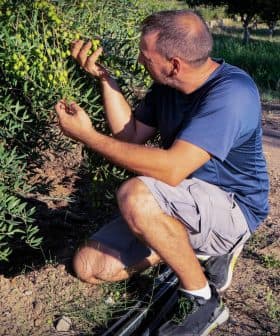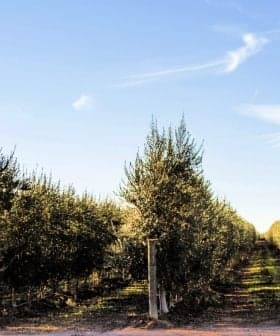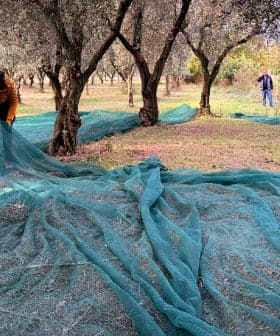Deforestation and Industrial Agriculture Spur Zoonotic Diseases, Study Finds
In the wake of the Covid-19 pandemic, new research examines the association between the emergence of zoonotic diseases, forest clearance and monocultures.
A new study has found a correlation between biodiversity loss and epidemic outbreaks, with deforestation and monoculture plantations increasing the risk of zoonotic and vector-borne diseases. Reforestation that does not replicate the original range of plant species can also lead to the same negative outcomes, particularly palm oil plantations are highlighted as a major factor in the emergence of infectious diseases.
A new study has identified a correlation between the loss of biodiversity on the planet and the outbreaks of epidemics, suggesting that deforestation and monoculture plantations may favor the manifestation of zoonotic and vector-borne diseases.
Reforestation that fails to reproduce the previously existing range of plant species can also lead to the same results, the study said.
We must give more consideration to the role of the forest in human health, animal health and environmental health. The message from this study is don’t forget the forest.
On the other hand, palm oil plantations are highlighted as the type of single-crop farming mainly responsible for the emergence of infectious diseases.
“Our results clearly suggest that it is not only forest clearance that is responsible for outbreaks of infectious diseases but also reforestation or afforestation, particularly in countries outside the tropical zone,” the authors of the study wrote.
See Also:Biodiversity Program Succeeds in Restoring Species to Olive GrovesA quarter of forest loss is due to land-use changes to produce certain commodities, including beef, soy, palm oil and wood fiber. Mining operations are also a factor to consider when tackling forest conversion, as they can affect various operations of the ecosystem like carbon sequestration and soil regeneration.
“We should take the costs of public health into account when considering new plantations or mines,” Serge Morand, a researcher at the French National Center for Scientific Research and one of the authors of the study, told The Guardian. “The risks are first to local people, but then worldwide because we have seen with Covid-19 how quickly diseases can spread.”
The study, published in Frontiers in Veterinary Science, is the first to examine the association between the loss of forest cover and disease outbreaks globally. It spanned 26 years, from 1990 to 2016, and analyzed thousands of cases of zoonotic and vector-borne ailments emerging in many countries of the tropical and temperate zones.
The scientists derived data on global forest cover from the World Bank, palm oil plantations from the Food and Agricultural Organization of the United Nations and data on human infectious diseases from the GIDEON epidemic database.
Then, they used general additive modeling techniques to combine the derived data with population demographics, concluding that there has been an increase of zoonotic diseases in deforested areas over time. In advance, commercial farming, particularly the rapid expansion of palm tree plantations, was found to have a positive association with increased vector-borne disease outbreaks.
Palm oil production, however, has been deemed unsustainable by several countries worldwide, which led to trading limitations of the product and the destruction of palm tree plantations in Sri Lanka.
The mechanism behind the outbreaks lies in the operation of the forest environment itself, the researchers explained; a healthy, biodiverse forest has the means to control viruses and the emergence of diseases through a range of habitats and specialized predators.
In the case that the forest is replaced by soy fields or palm tree plantations, however, the predators vanish and the “ecological regulation” is lost, allowing pathogen hosts such as mosquitoes and rats to spread diseases.
“I was surprised by how clear the pattern was,” Morand said. “We must give more consideration to the role of the forest in human health, animal health and environmental health. The message from this study is don’t forget the forest.”
To further support their results and provide some scientific evidence of causality, the researchers examined individual case studies on the change of land use and the manifestation of epidemics.
They found that in South America, several studies suggest that deforestation has spawned malaria epidemics. In West Africa, scientific research has demonstrated that forest clearing is the main driver for the emergence of Ebola.
In temperate countries, the emergence of diseases was mainly linked to reforestation. In Italy, the increased cases of tick-borne encephalitis in humans are attributed to small tick-hosting mammals that thrive in coppice forests. In the United States, reforestation has led to increased deer populations and the reappearance of tick-borne diseases.
“What is needed is a better way to stop both the loss of biodiverse native forests and a better management of afforestation to increase their contribution not only to biodiversity or carbon sequestration but to local livelihood and health,” the researchers wrote.
“Scientists, public health and policymakers should reconcile the need to preserve biodiversity while taking into account the health risks posed by lack or mismanagement of forest,” they added.
Morand finally warned that it is only a matter of time for an epidemic to become the next pandemic.
“The risks are very high,” he concluded. ”It’s just a case of when and where. We need to prepare.”









